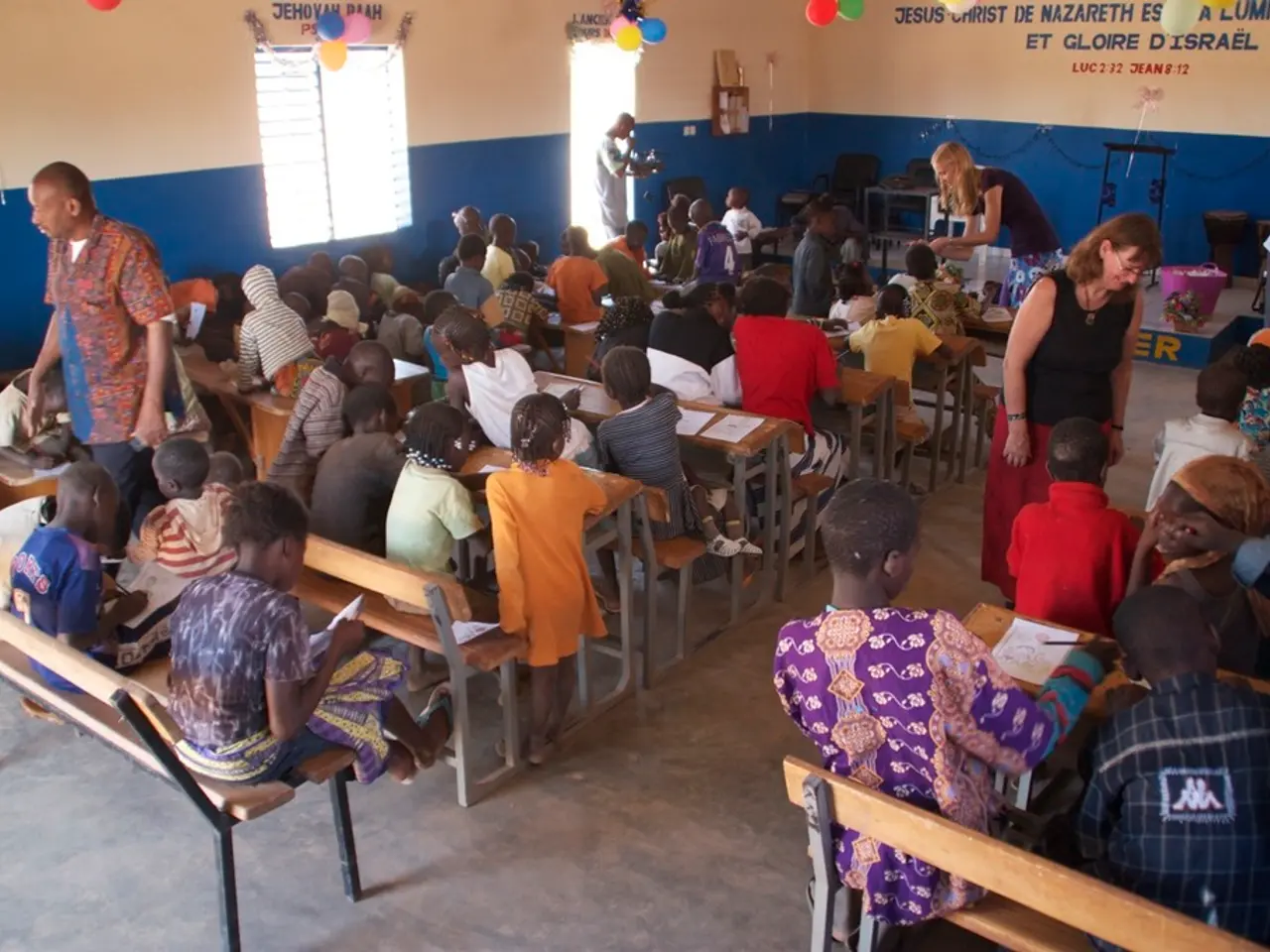Children's Day Worldwide in 2025: Recent research indicates rising alarm over child safeguarding issues
In a recent survey conducted by GfK (Society for Consumer Research) on behalf of the Albert-Schweitzer-Association of Family Services and Children's Villages, concerns about child protection in Germany have come to light. The study, published on World Children's Day 2025, sheds light on the current state of child welfare and the public's perception of various organizations involved in supporting children removed from their families due to neglect, abuse, or violence.
The study reveals that the most common reasons for children being taken into care in 2024 were parental overload (17,478 cases), neglect (8,481 cases), indications of physical abuse (7,375 cases), indications of psychological abuse (5,549 cases), indications of sexual violence (1,234 cases), and unaccompanied entry from abroad (30,786 cases).
Interestingly, the search results did not provide information about which organizations in Germany were considered the most trustworthy in 2025 for caring for and supporting these children. However, the survey results indicate that 72.9% of respondents express trust in non-profit organizations and welfare associations, making them the most trusted providers.
Religious or church-based carers rank fourth in terms of trust, with 39.1% of respondents expressing trust. The Albert Schweitzer Kinderdoerfer and Familienwerke, offering a wide range of support services for children, young people, families, people with disabilities, and seniors in ten federal states, are among these trusted organizations.
The survey also shows that a majority of 38.1% of respondents consider family-like care in Kinderdorf families with permanent foster parents to be the best option for children removed from their family environment due to violence or neglect.
However, the study also highlights some areas of concern. More than 1,000 children live permanently in family-like Kinderdorf families, but only just under a quarter of minors returned to their previous place of residence after being taken into care. Additionally, 56.2% rate state support measures as very poor or rather poor.
Perhaps most concerning, 65.2% believe the number of children in family crises where child welfare is at risk has increased in the last five years. This growing concern is reflected in the fact that 47.8% of respondents believe that the state is responsible for providing protection to children in need, but only 46.1% trust the state in matters of child protection and family support.
The survey results underscore the need for continued efforts to improve child protection and support services in Germany. As the number of children in need continues to grow, it is crucial that we work together to ensure their safety and wellbeing.
Read also:
- Restoring SCN2A gene function in mice through CRISPR activation enhances neurodevelopmental outcomes.
- Tracking Grapes for International Shipping
- New York joins a multistate health coalition to counteract chaos in federal vaccine distribution efforts
- Enhanced Iron Absorption in Female Health: Biotechnology Developed Plant Protein Outperforms Iron Supplements in Fermentation






